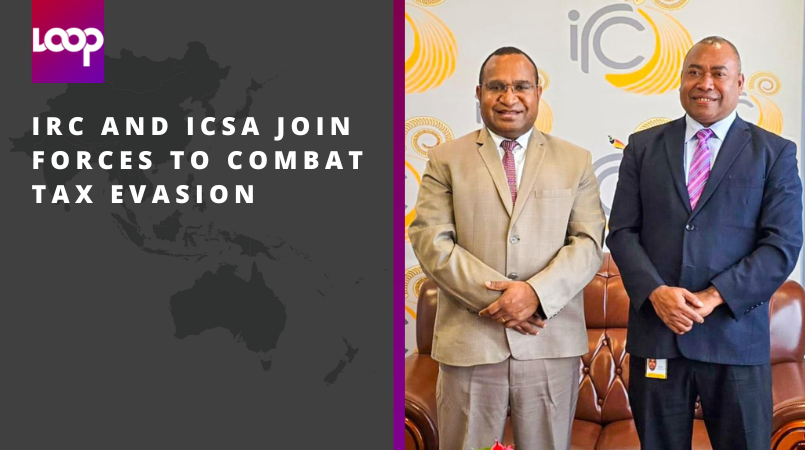
The Internal Revenue Commission (IRC) and Immigration and Citizenship Services Authority (ICSA) have embarked on a collaborative effort to tackle work permit violations and tax evasion in Papua New Guinea.
IRC launched a project called “Project Masta”, initially aimed at addressing tax evasion schemes by foreign workers and local group employers.
The initial investigations revealed that foreign workers would come on a work visa sponsored by one company but then end up working for multiple companies.
There are also instances where foreign workers are paid through their overseas bank accounts but paid a lousy living allowance here in Papua New Guinea (PNG) to evade taxes.
To facilitate this, dual contracts—external and local—were sometimes utilized. Furthermore, instances were discovered where foreign workers entered PNG on business visas to work in inline positions as employees, thereby evading tax.
Significant mismatches were uncovered between the number of foreign workers holding work visas and the group employee declarations submitted to the IRC.
Recognizing the severity of these issues, the IRC and ICSA have intensified collaboration efforts.
This commitment was reinforced during a meeting between Acting Chief Migration Officer, Wellington Navasivu, and Commissioner General Sam Koim. Building upon an existing Memorandum of Understanding, the agencies have united to address these challenges effectively.
The decision to initiate a joint operation under Project Masta follows a recent incident involving a major mining company that faced penalties for its involvement in tax evasion practices.
Through a thorough examination, the IRC meticulously scrutinized 1,187 employees over nine years spanning from 2015.
This investigation revealed that specific employees occupying key positions within a mining company entered the country using short-term business visas, raising concerns regarding compliance with immigration and tax regulations.
During the joint announcement, Commissioner General Sam Koim emphasized, "The type of visa has significant tax implications.
IRC is initiating several projects to curtail the level of revenue leakages and close the tax gap, and this is one of the projects. Companies that employ foreign workers, and foreigners who come to this country to earn an income, must comply with our tax laws."
He further stated, "Our highly trained officers will be conducting audits, and once found liable, will be penalized severely hence let this be a stern warning to all. IRC now has highly skilled auditors and data analysts to dissect and analyze mass data to establish whether foreign workers employed by resident companies had breached the law.”
Acting CMO Navasivu emphasized, “Employers are once again being reminded of their responsibility to ensure that all employees, including those on business visas, are properly authorized to work under the laws of this country, including the tax laws and the immigration laws and to strictly comply with their work permit conditions.
“Failure to comply with these regulations may result in severe penalties, including fines, deportation, and other legal consequences.”
He further assured, "ICSA will work closely with IRC to address the significant incidences of breach of work visas and tax laws."
All businesses and individuals must review their obligations regarding employment authorization and tax compliance. If you have any questions or concerns regarding these matters, please contact the IRC or seek professional guidance from a qualified tax advisor.
